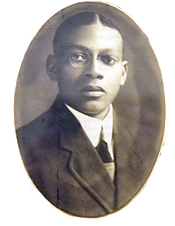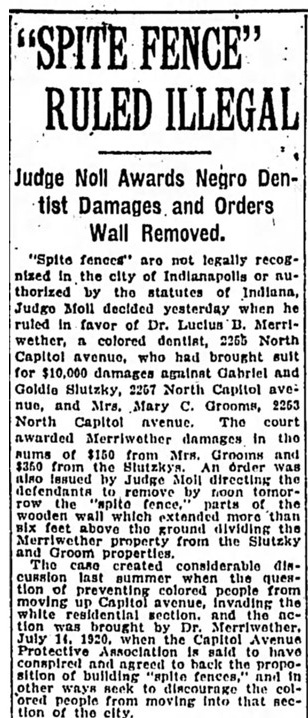
Photo info …
Credit: IU Robert H. McKinney School of LawView Source
(June 29, 1885-Mar. 4, 1940). Born in Florence, Alabama, Bailey attended public schools before graduating from Talladega College in 1906. In 1912, he earned a Bachelor of Laws (LL.B.) from Indiana Law School in Indianapolis (now known as McKinney School of Law).
Bailey worked as a federal railway postal clerk upon graduation from law school. In this position, he helped found the National Alliance of Postal Employees (later the National Alliance of Postal and Federal Employees [NAPFE]), a labor union created in 1913 to address racial discrimination against Black workers in the U.S. Postal Service. Bailey drafted the organization’s constitution and served as its general counsel.
Bailey quickly established himself as a skilled lawyer committed to civil rights. One of his earliest victories came in the well-publicized 1921 “spite fence” case involving Dr. Lucian Meriwether, an African American dentist. When Meriwether’s family moved into an all-white community on North Capitol Avenue in 1920, his neighbors built high fences between their homes in an attempt to discourage residential integration. Bailey successfully obtained an injunction against the neighbors, which forced them to remove the fences.

Bailey, and his partner , defended James Cameron in the aftermath of the infamous lynching of Thomas Shipp and Abram Smith in Marion, Indiana, on August 7, 1930. The three African American teens had been charged with murdering a white factory worker and raping his fiancée, which led a mob to break into their jail cell and lynch Shipp and Smith. Cameron narrowly escaped the incident. Despite interrogators’ coerced confession from Cameron and the female victim’s inconclusive identification of Cameron as the perpetrator, an all-white, all-male jury found him guilty as an accessory to voluntary manslaughter in 1931. Cameron served two years at the Indiana State Reformatory for the crime but was later pardoned by Governor Evan Bayh in 1993.
Despite Indiana’s racial climate in the 1920s and 1930s, Bailey experienced many career highlights. He was a member of the (the only Black member for several years), a special judge in the Marion County Circuit Court, a candidate for a seat in the Indiana House of Representatives, and a member of the Legal Aid Society of the Indianapolis Bar Association.
In 1931, Bailey became the first African American in Indiana to serve as assistant attorney general. In this role, he helped Indiana Attorney General James Ogden, an old friend from law school, with several important cases, including trials involving conspiracy, blackmail, bank robbery, and murder.
Along with his decades-long involvement with the National Alliance of Postal and Federal Employees, Bailey was also active in the Indianapolis branch of the as president and acting counsel. He also served as chair of the Legal Redress Committee for the Indiana State NAACP. Other affiliations included ; Kappa Alpha Psi fraternity; and the Masons, Shriners, and Elks.
Following his death, Bailey’s legal legacy continued through his daughter . She became a deputy attorney general of Indiana, Indiana State Representative, and Indiana State Public Defender.

Help improve this entry
Contribute information, offer corrections, suggest images.
You can also recommend new entries related to this topic.

